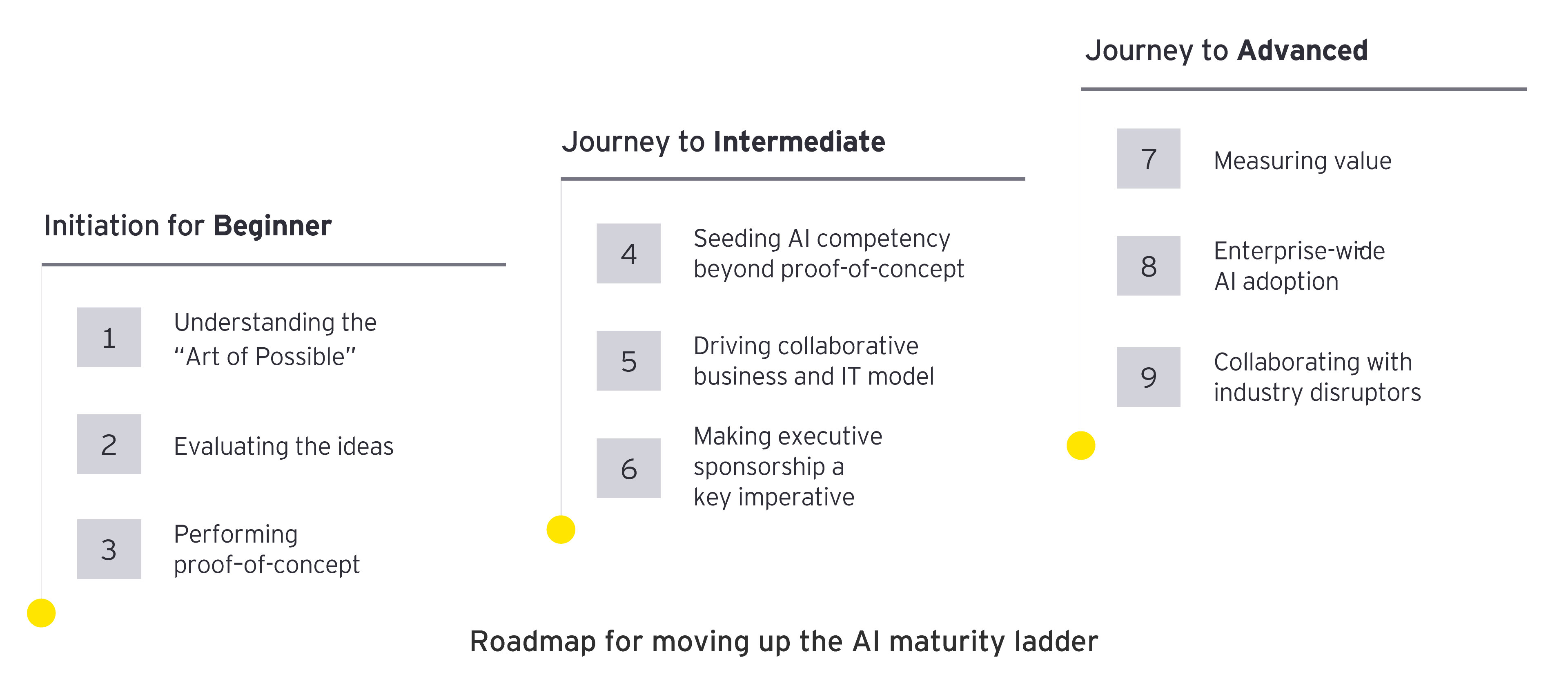“Business leaders appreciate the need to deploy AI for staying competitive and generating long-term value.”
Roadmap to moving up the AI maturity ladder
As enterprises look to determine the What and How of AI, it may be important to baseline their current level of preparedness and maturity. An enterprise AI maturity model could prove useful in providing enterprises with a frame of reference for their current state on maturity of AI and help define a roadmap.

While the nature and intensity of challenges facing AI initiatives could vary by businesses, some key principles and methods enable them to deliver long term value. A mutually reinforcing combination of bringing together required resources through strategic planning and investments from the highest levels of the organization, and robust practices around data governance, security and privacy protection could ensure impactful AI programs with lower risks.
There are different lenses to look at AI value. Make sure that you have the right one for you. Different companies do it differently.
Most organizations are barely scratching the surface when it comes to taking advantage of AI. The affirmation from the CXO respondents distinctly points us to an era where AI can power organizations to adapt operations in the “Now” phase and build resilience and reframe business as the “Next” and “Beyond” steps.
Modernizing existing technology infrastructure and creating a single view of data is a top priority for enterprises to scale their AI implementations.
The EY-NASSCOM survey provides primary analysis on the overall AI planning and deployment maturity of Indian enterprises, vis-à-vis global players and also, individual industry level AI adoption maturity. It forms the bedrock for more in-depth sector-specific playbooks that enable enterprises within specific industries to fine-tune their AI journey.
Summary
AI adoption is a critical competitive lever. It enables business leaders to infuse technology at speed, while keeping humans at the centre to create long-term value.


